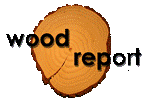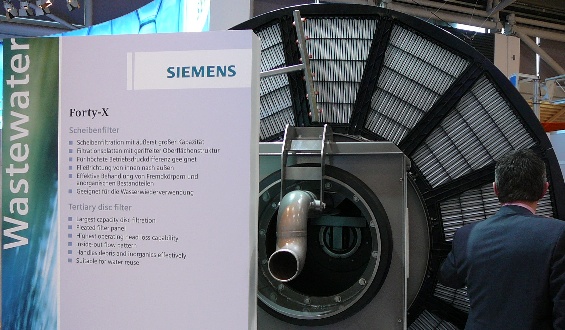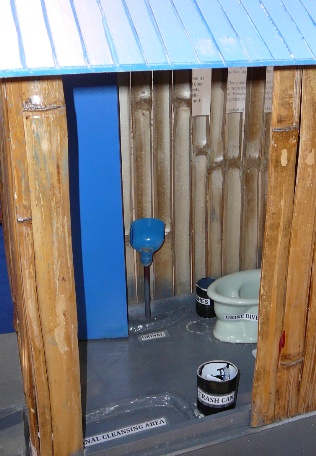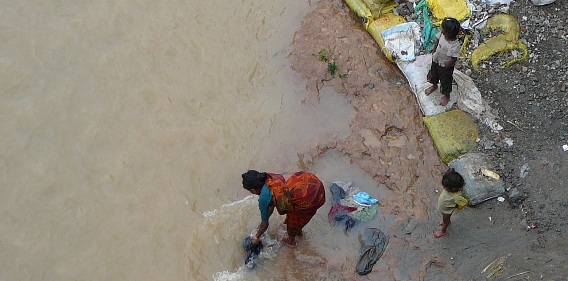 |
|
|
|
|
|
|
||||
|
(World’s biggest and most important trade fair for environmental technology and services) with special regard to India A total of 2,560 exhibitors from 44 countries presented innovative products and services in the fields of water, sewage, waste and recycling. Over 120,000 trade visitors from 163 countries came to the event.
In order to achieve the millennium goal of the United Nations, namely of halving the number of people without access to clean water and sanitation by 2015 (goal 7, target 10), each year over 80 million people have to gain access to clean water. How to produce and distribute this water, and process the waste water in an environmentally-friendly way, and how to increase the efficiency of water use are cornerstones in building a sustainable water economy. In order to contribute to this development a presentation on the IFAT was the official launch of the operational activities of the new initiative "German Water Partnership". This is a joint initiative involving many companies from the German water industry, water-research establishments and water-industry associations. It also involves five Federal Ministries - those for research, economics, economic cooperation, the environment and the Foreign Office. As of now the German Water Partnership has an office in Berlin which acts as a central contacts point for inquiries from abroad. The association which supports the initiative was founded on 8 April 2008, and it already has 140 members. Introducing sanitation and recycling nutrients The German GTZ as one member of this partnership wants to close the loop between sanitation and agriculture by ecological sanitation. Within the framework of the ecosan-programme in India, for example, a public toilet block has been installed in a slum area of Bangalore, providing clean sanitation services at low cost to poor inhabitants. Faeces and urine are collected separately and reused in the city outskirts for fertilising a banana plantation and for energy production in a biogas plant. A series of regional workshops were organised by the Innovative Ecological Sanitation Project India (IESNI) with support from Norway, Sweden, the Netherlands, Switzerland and Germany aiming to introduce ecological sanitation, initialise pilot projects, and support capacity building and networking in ecological sanitation in India. Ecosan Services Foundation (ESF), Pune, India is a section 25 non-profit company established in 2006, with the support of GTZ. ECOSAN-CAPACITY is a project funded by the European Commission as part of the component B "Capacity Building" of the AsiaProEco Program. The main objective of this venture is to build capacity for future implementation of ecological sanitation projects in India, thus increasing the number of ecosan experts capable of planning, designing and realising sustainable sanitation projects in the region. The project, which started on the 1st of January of 2007, is carried out by six civil society, research and education organisations from each corner of the Indian nation, as well as two European institutions. http://www.ecosan-capacity.org More details about the importance of this topic for developing and developed (!) countries is being explained by the Swiss Federal Institute of Aquatic Science and Technology: "Although urine makes up only 1% of the total volume of wastewater, it accounts for 50–80% of the nutrient content. Eawag has now shown that separate collection and treatment of urine could make significant contributions to water pollution control and nutrient recycling worldwide." (Source: eawag). Other sources: EcoSanRes Actual information: The IWW Rheinisch-Westfälisches Institut für Wasserforschung gGmbH is organising an International Conference and Exhibition on Water in the Environment (enviroWater 2009) on 2-4 March 2009 in Stellenbosch, South Africa. The contributions of the enviroWater 2006 provide a lot of valuable information.
Wetland systems for decentralized low cost sewage treatment On the IFAT the German Zech Umwelt GmbH was presenting its wetland systems for domestic and industrial water treatment. The company has already applied this technology successful in Brazil. Still this technology in India seems to be in its childhood stage, and it is believed that this low cost treatment technology can have widespread utilization in thousands of small municipal towns, cities, mega cities, remote camping areas and even in private/ public parks for dual purposes: treatment as well as spectacular sites supporting the biodiversity.(Source) |
||||||
|
|
|
|


